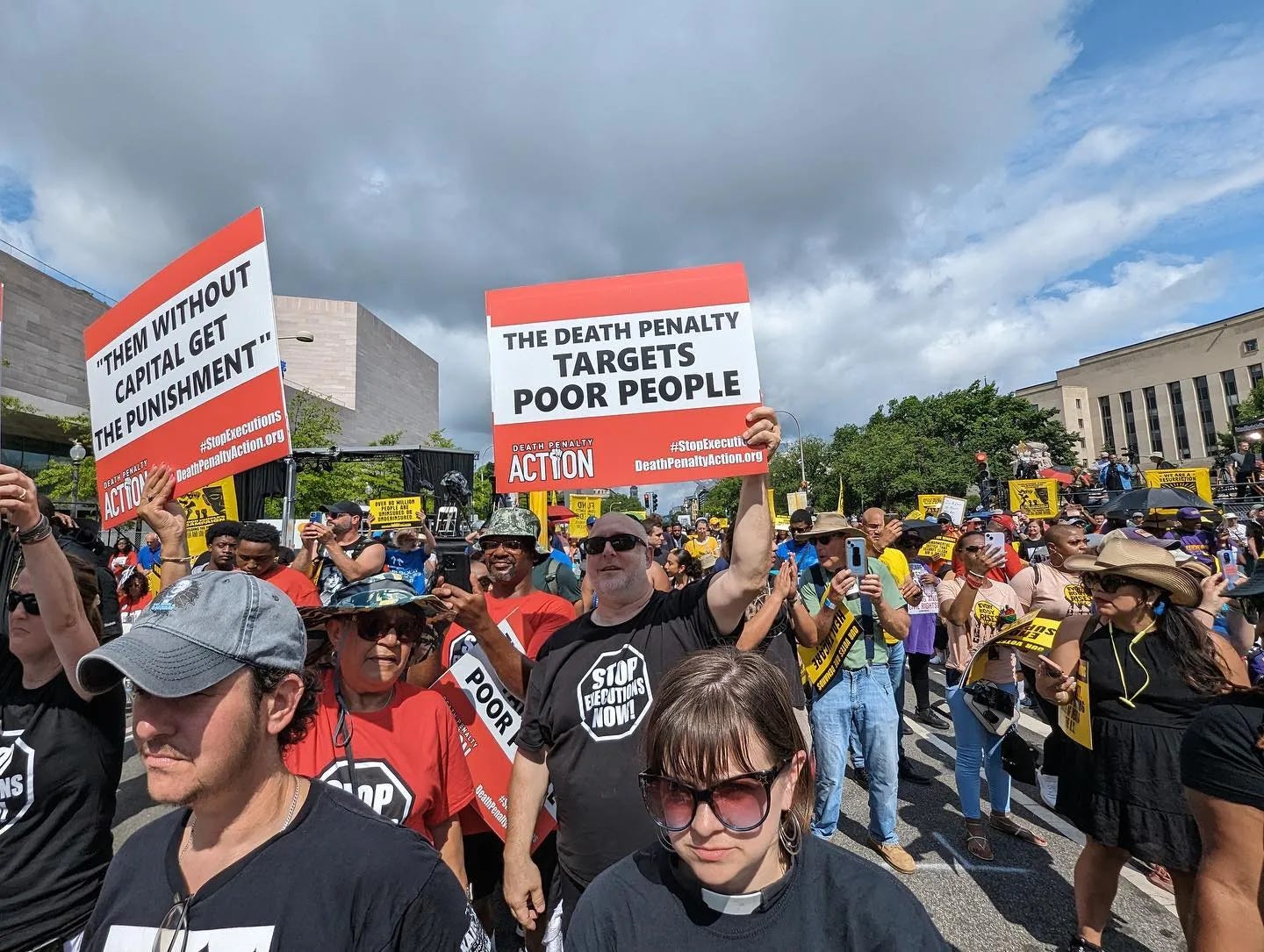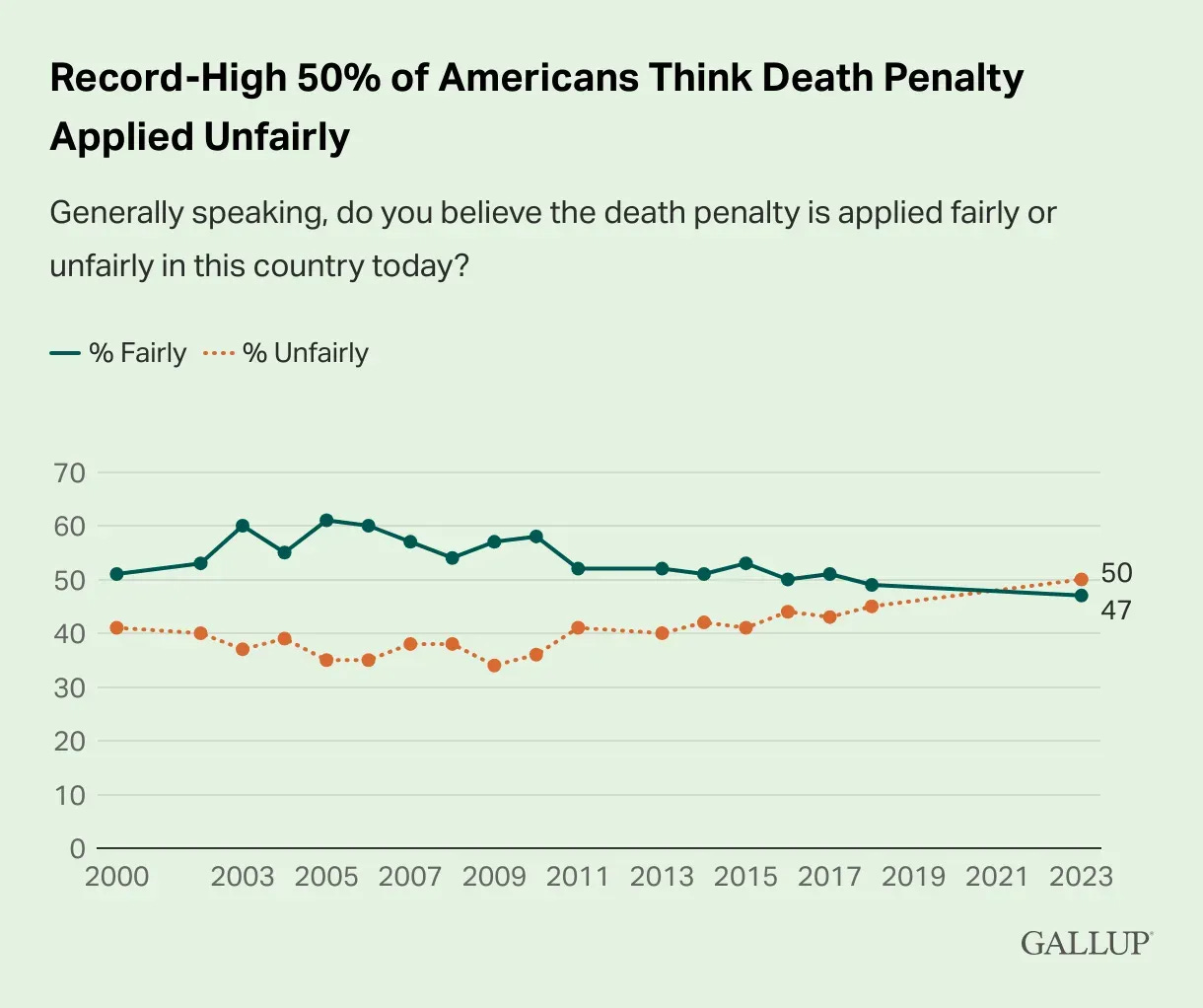Over 350 Organizations, Many of Them Catholic, Urge Biden to Commute Executions of All Federal Death-Row Inmates
They note that Trump, whose administration executed the most federal inmates under any president in over 120 years, has vowed to expand the death penalty.
By Gary Gately
With President-elect Donald Trump vowing to expand the federal death penalty, 350 organizations, scores of them Catholic, have urged President Joe Biden to commute the executions of the 40 inmates on federal death row before he leaves office.
Death Penalty Action, an organization that seeks to abolish the death penalty, coordinated the joint letter to Biden from the organizations. It also urges the Biden administration not to pursue the death penalty in pending or future cases and to order the Federal Bureau of Prisons to demolish the federal execution chamber and the building in which it is housed at the Federal Correctional Institution in Terre Haute, Indiana.
Separately, more than 31,700 people have signed a Death Penalty Action petition making the same requests of Biden.
The letter and petition noted that Biden had promised during his campaign in 2020 to abolish the federal death penalty but did not do so. Attorney General Merrick B. Garland imposed a moratorium on federal executions in July 2021 while the Justice Department reviewed death penalty policies and procedures.
“As you are aware, this abhorrent and outdated punishment raises profound concerns, including the arbitrariness of its application, its inherent racial bias, and the alarming rate of innocence among those sentenced to death,” the letter to Biden stated.
“We write to you today with renewed concern and urgency. President-Elect Donald Trump’s stated plan is to execute all remaining prisoners on the federal death row. It is vital that you deny him that opportunity by commuting every [federal] death sentence remaining.”
More than 70 Catholic organizations, including the Catholic Mobilizing Network (CMN), which seeks to end the death penalty, signed the letter to Biden. So, too, did other death penalty opponents, including the American Civil Liberties Union, Amnesty International, Equal Justice USA, Human Rights Watch and The Innocence Project.
Krisanne Vaillancourt Murphy, CMN’s executive director, expressed alarm over Trump’s “sordid” and “horrifying” record on executions: His administration carried out 13 federal executions during his last six months in office, including the first woman executed in the U.S. in nearly 70 years and the the youngest, age 18, at the time of the crime.
The executions under the Trump administration marked the first federal executions in 17 years and the most under one president in more than 120 years.
Vaillancourt Murphy called on Biden, the nation’s second Catholic president, to commute the sentences in keeping with the Catholic Church’s opposition to the death penalty.

In 2018, Pope Francis revised the Catechism of the Catholic Church to state that the death penalty is “inadmissible because it is an attack on the inviolability and dignity of the person… even after the commission of very serious crimes.”
Since then, Francis has repeatedly called for abolition of the death penalty.
His revision updated a 1997 Catechism version by Pope John Paul II that permitted the death penalty in rare cases where it was deemed “the only possible way of effectively defending human lives against the unjust aggressor.”
Vaillancourt Murphy exhorted Biden to commute the sentences “in the spirit of mercy and the kind of justice that upholds the dignity of all life, no matter the harm one has caused or suffered.”
“It is fitting that [Biden] should act on his faith and do what is squarely within his constitutional authority to do,” Vaillancourt Murphy said. “His action could mark the beginning of the end of capital punishment in the United States.
“Faithful Catholics have the moral voice and mobilizing power to drive meaningful change in this country to end capital punishment,” Vaillancourt Murphy said. “Like the state systems, the federal death penalty system is broken. Our work educating, advocating and praying to end the death penalty and promote the healing practices of restorative justice has taken place under several administrations, and will continue no matter who is in the White House.”
She pointed out that ahead of Jubilee 2025, a rich Catholic tradition that comes every quarter-century and celebrates God’s compassionate love and mercy, Pope Francis has called for “forgiveness, reconciliation and an end to every form of death penalty.”
“Faithful Catholics have the moral voice and mobilizing power to drive meaningful change in this country to end capital punishment.” — Krisanne Vaillancourt Murphy, executive director, Catholic Mobilizing Network
Death penalty opponents cite extensive research demonstrating that it does not deter crime and is applied arbitrarily and disproportionately to Black people and people with mental illnesses or intellectual disabilities and those convicted based on flawed forensic evidence, raising serious constitutional issues.
Biden became the first U.S. president to openly oppose the death penalty, but the moratorium is not a ban.
In fact, the Biden administration is pursuing the death penalty against Payton Gendron, who killed 10 Black people in a racist rampage at a Buffalo supermarket in 2022, and Boston Marathon bomber Dzhokhar Tsarnaev for his role in the 2013 attack that killed three people and injured hundreds. And a jury granted federal prosecutors’ request for the death penalty against Robert Bowers, who killed 11 congregants at Pittsburgh’s Tree of Life Synagogue in a hate crime in 2018.
Neither the White House nor the Justice Department responded to a request for comment.
For his part, Trump pledged throughout his campaign to expand the death penalty, including to child rapists, migrants who kill U.S. citizens and law enforcement officers and those convicted of drug and human trafficking.
Early in his campaign, he even suggested “everyone who sells drugs” should be put to death.
At a June rally in Las Vegas, Trump suggested that the U.S. would have no drug problem if it followed China’s example and captured, tried and executed drug dealers in a very short span. The president-elect has suggested streamlining capital punishment cases to dramatically reduce the time between sentencing and execution.
The Trump campaign has not responded to a request for comment.
In August, The New York Times published an editorial urging Biden to direct the Justice Department not to pursue the death penalty in pending or future cases and, to commute the sentences of those on federal death row and to abolish the death chamber in Indiana.
The Times also said that proposing federal legislation, even with its chances of passage unlikely, “could restart an important conversation in American society about ending the death penalty” and “remind the nation that this practice is immoral, unconstitutional and useless as a deterrent to crime.”
The editorial cited research the death penalty is applied arbitrarily and disproportionately to Black people and people with mental illnesses.
Congressional Democrats, led by Illinois Senator Dick Durbin, have introduced legislation that would abolish the federal death penalty repeatedly since 2019, but it has failed to win passage.
While Trump has pledged to expand the federal death penalty, a growing number of states have abolished it (23) or put moratoriums on executions (six) while 21 still have the death penalty on the books. And a November 2023 Gallup poll found that a record-high 50% of Americans think the death penalty is applied unfairly, while support for capital punishment fell to a five-decade low of 53%.
Since 1976, when the Supreme Court reinstated the death penalty, 1,603 people have been executed in the U.S., and since 1973, 200 death-row inmates have been exonerated, according to Death Penalty Information Center.




